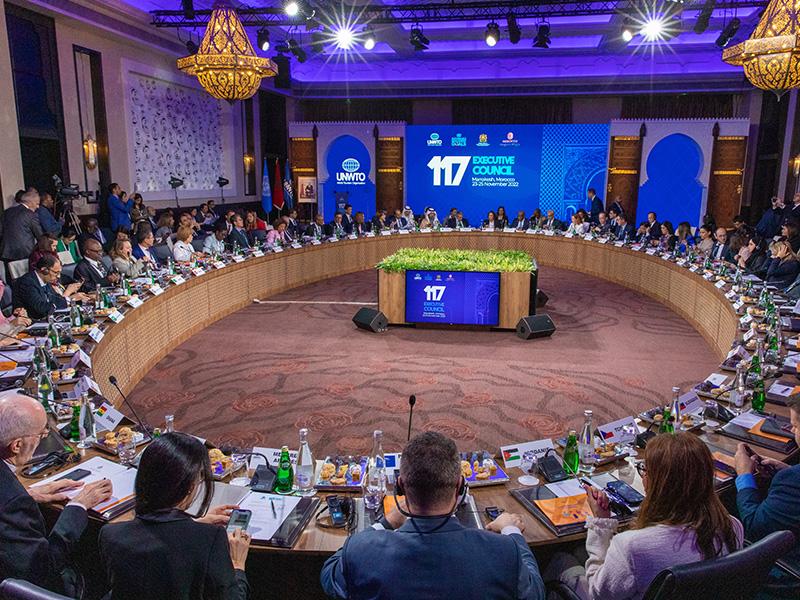|
Getting your Trinity Audio player ready…
|
By Kanchan Nath
Tourism leaders from every global region have met to advance plans to transform the sector against a backdrop of challenges old and new. UNWTO convened its Executive Council in Marrakesh, Morocco, as the sector’s recovery continues to gather pace.
Welcoming 16 Ministers of Tourism and delegations from 36 countries, UNWTO Secretary-General Zurab Pololikashvili underscored that “the window of opportunity to transform our sector will not stay open for long”. He emphasized that “now is the time to fast-track building a more inclusive, resilient and sustainable sector”, and reminded this leading UNWTO governing body that tourism’s success cannot longer be measured based on numbers alone, “but rather on the impact our sector has on lives, on livelihoods and the wellbeing of both people and planet”. On the eve of the Marrakesh meeting, the United Nations General Assembly was presented with a draft resolution calling on all parts of the UN system to promote tourism in their work to achieve the Sustainable Development Goals (SDGs). The resolution, which so far has the support of 104 countries, is the culmination of UNWTO’s enhanced presence at the highest political level. It is also a reflection of the unprecedented recognition of tourism’s importance to economic and social wellbeing and integrates the key strategic work streams of UNWTO. In particular, it draws attention to tourism’s power to help build inclusive societies and protect ecosystems.
Alongside sharing this landmark moment for the sector, in his report to Members on its achievements since the previous Council meeting, Secretary-General Pololikashvili illustrated how UNWTO is leading the transformation of tourism. Central to this is a stepping up of education and training programmes, promoting investments in tourism for growth and sustainability, and through providing technical assistance for Member States in every region. Executive Council Members also heard how UNWTO has delivered in advocating for tourism at the very highest level.
Fatim-Zahra Ammor, Minister of Tourism, Handicraft, and Social and Solidarity Economy of the Kingdom of Morocco warmly welcomed the UNWTO leadership and his fellow Ministers to Marrakesh. She added: “This important session of the UNWTO Executive Council provides us with the opportunity to reaffirm priority orientations to promote the prosperity and development of our sector. I am looking forward to more resilient tourism in the African continent thanks to an inclusive continental approach that will increase the awareness of Africa’s assets thus improving the attractiveness of Africa as a destination.”
SMEs, digitalisation and rural development
Within the framework of the 117th Session of the Executive Council, UNWTO also held a special Thematic Session focused on empowering small businesses to be agents of transformation, inspired by the G20 Guidelines for Tourism SMEs and Communities as agent for transformation. The Session brought together Ministers of Tourism alongside leading figures from the private sector to address the biggest challenges standing in the way of smaller enterprises fulfilling their potential to drive change. These include access to investment and financing, a lack of market intelligence and an inability to adapt to meet changing consumer trends.
Also underlining discussions in Marrakesh was a shared recognition of the importance of tourism for rural development and opportunity. In his report to the Executive Council, Secretary-General Pololikashvili provided an update on the new Programme for Tourism and Rural Development, hosted by the Regional Office for the Middle East in Riyadh, including of its flagship initiative, Best Tourism Villages by UNWTO.
